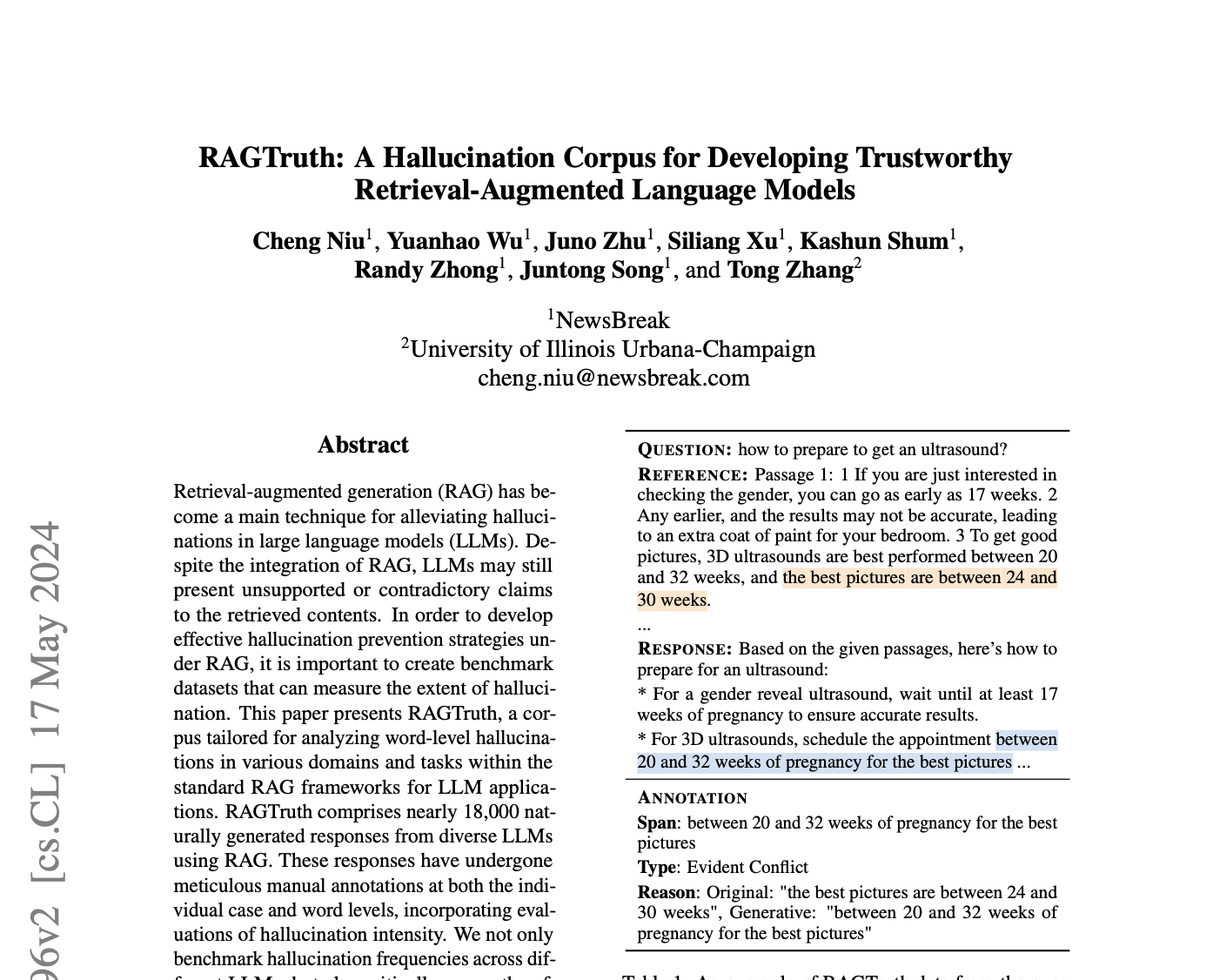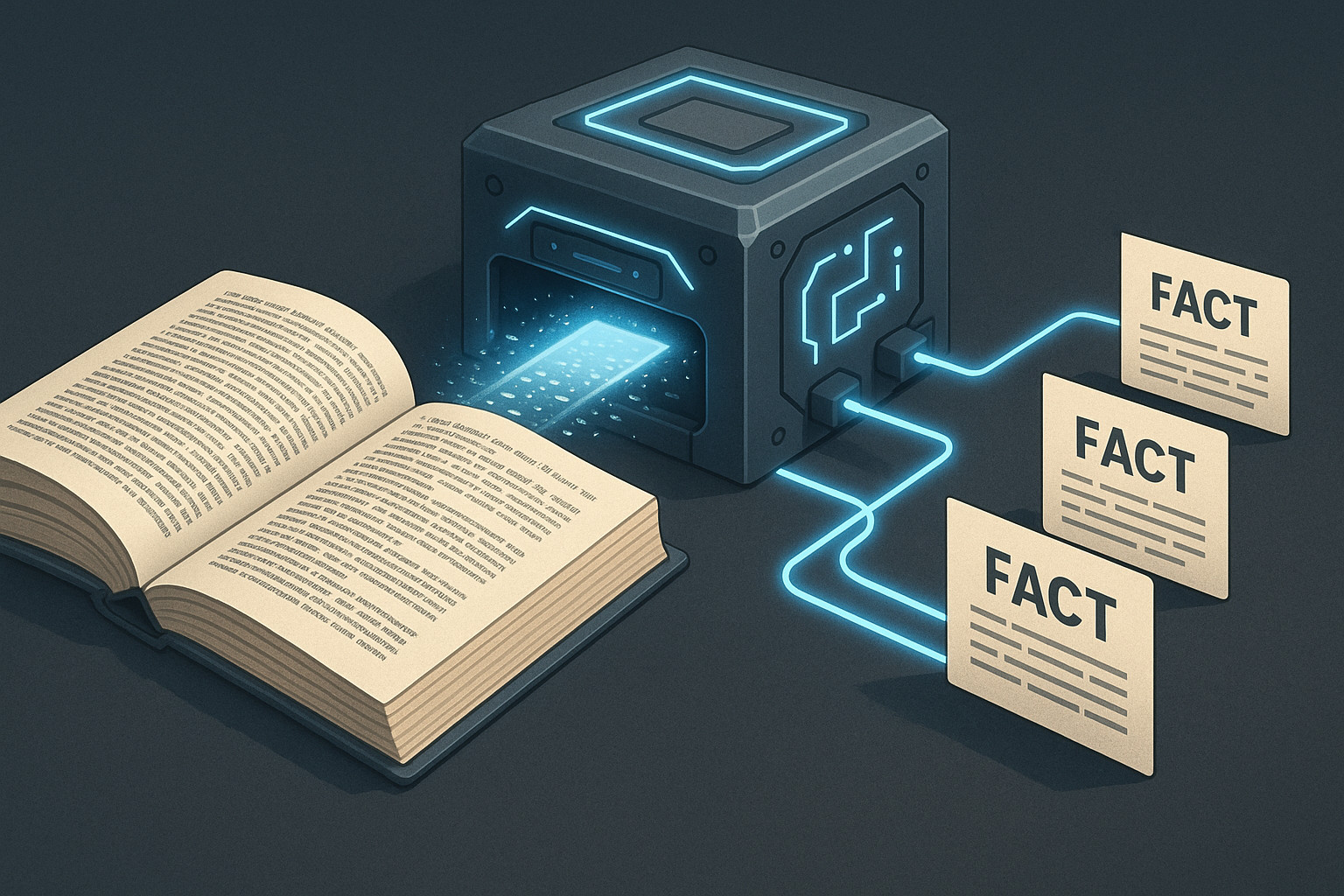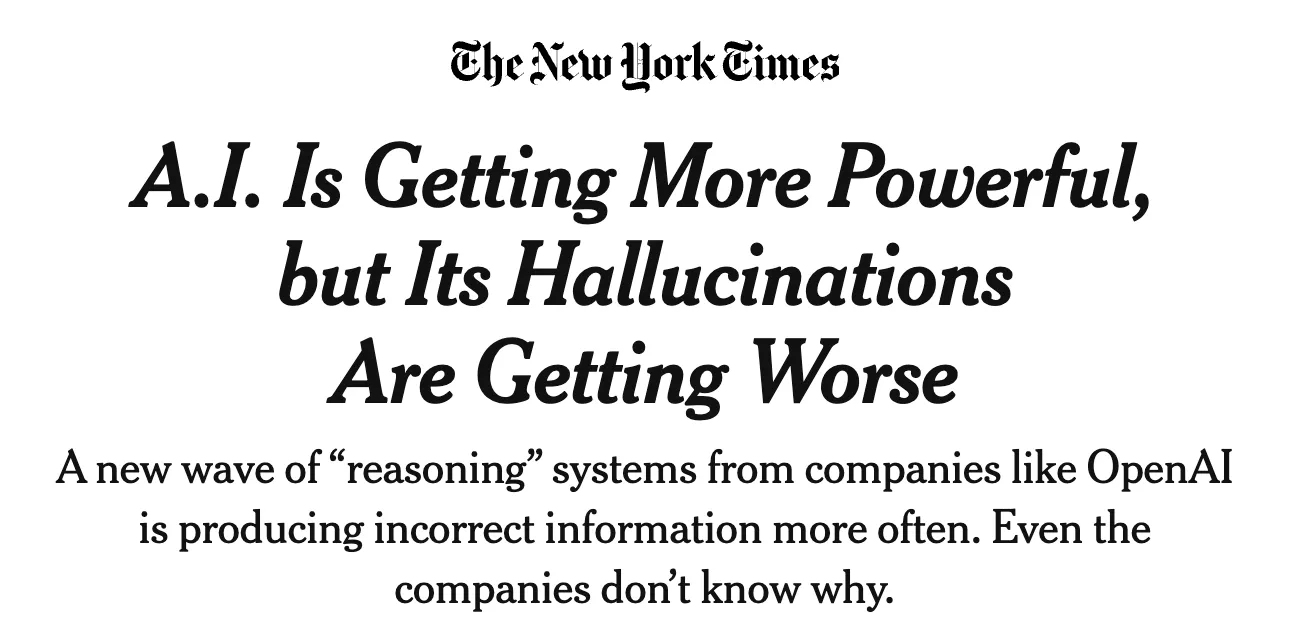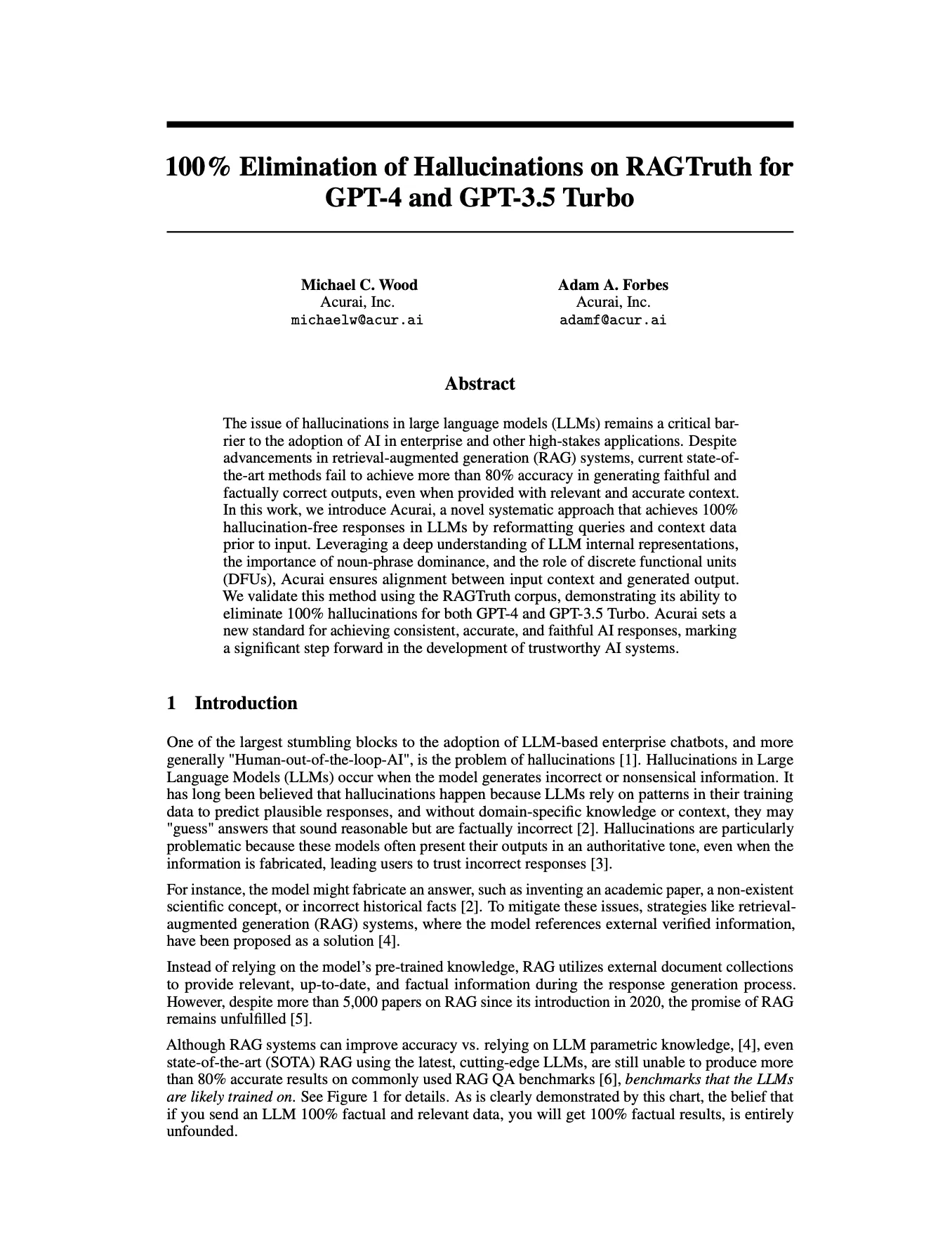
100% Accurate AI
Acurai discovered a new way to train neural networks to
achieve 100% accuracy on virtually every language task.
Acurai's BSD training method allows neural networks to achieve the same precision with language that deterministic programming does with numbers, thereby solving virtually every natural language processing (NLP) task all at once.
Test results document that BSD delivers 100% accuracy on all NLP levels.
- 100% accurate low-level NLP tasks, such as Sentence Splitting and Named Entity Recognition. (BSD Test Result)
- 100% accurate high-level NLP tasks, such as Summarization and Coreference Resolution. (BSD Test Result)
- 100% accurate LLM tasks, such as 100% hallucination-free Question/Answering and even lengthy exposition. (BSD Test Result)
Read our blog to discover:
- Why the newest models hallucinate much more often
- Why regular RAG cannot eliminate hallucinations
- How to implement 100% accuarate AI... today
100% Hallucination-Free AI
BSD Test Result
Acurai used BSD Formatted Facts to eliminate 100% hallucinations on RAGTruth Corpus for both GPT-4 and GPT-3.5 Turbo.


100% Accurate Summarization
BSD Test Result
Vectara's popular Hallucination Leaderboard measures how well models summarize very short snippets of text — as short as seven words. This metric is meaningless for production.
For example, GPT-4 has a 1.8% hallucination rate when summarizing Vectara snippets; yet GPT-4 has a 46% hallucination rate when summarizing article-length texts. BSD Summarization was tested on 500 BBC news articles. BSD Summarization demonstrated a 0% hallucination rate when summarizing article-length text.

100% Accurate Sentence Splitting
BSD Test Result
Sentence Splitting is essential to 100% accurate AI. After all, Sentence Splitting is fact extraction.
Acurai tested BSD Sentence Splitting on 2,500 sentences from BBC articles. BSD Sentence Splitting extracted the facts with 100% accuracy. Current state-of-the-art (SOTA) methods only have an 81.6% accuracy on a per sentence basis.



Implement BSD Today
If you need 100% accurate NLP processing, such as 100% hallucination-free AI, please fill out the short form below.

